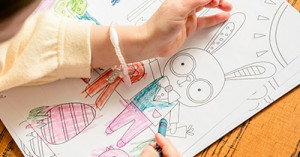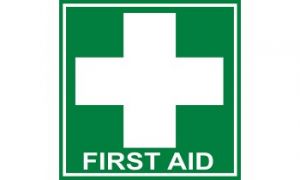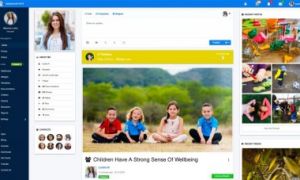In early childhood education, care is our currency. We pour it into children, families, documentation, and compliance—but how often do we pause to ask, “R U OK?” to the person beside us? R U OK? Day isn’t just a date on the calendar—it’s a culture we cultivate. It’s a reminder that behind every ratio, roster, and regulation is a human heart doing its best. And sometimes, that heart needs to be asked, gently and genuinely, “How are you, really?”
Why It Matters
Educators are frontline emotional laborers. We hold space for children’s tears, tantrums, and triumphs—often while suppressing our own. Burnout, compassion fatigue, and moral distress are real. But so is the power of peer connection.
When educators feel seen, heard, and supported, well-being improves. Practice deepens. Retention strengthens. And most importantly, joy returns.
Strategies to Embed R U OK? Culture
Here are practical, emotionally intelligent ways to activate R U OK? Day in your setting:
1. Staffroom Affirmation Wall
Create a space where educators can anonymously post affirmations, gratitude notes, or “I see you” messages. Use sticky notes, printable templates, or QR-linked music cards to layer emotional resonance.
2. Mailbox Moments
Drop a small treat (Chupa Chup, tea bag, affirmation card) into each educator’s pigeonhole with a handwritten note: “You matter. R U OK?” It’s not the sugar—it’s the sentiment.
3. Wellbeing Check-In Wheel
Design a visual tool where staff can mark their emotional state at the start of each shift. Use emojis, colours, or metaphor prompts (“stormy,” “sunny,” “foggy”) to normalise emotional literacy.
4. Micro-Moment Reflection Cards
Offer pocket-sized prompts like:
- “Today I felt most connected when…”
- “A colleague I’m grateful for is…”
- “One thing I need right now is…”
These can be shared, journaled, or simply held.
5. Peer Support Mapping
Invite educators to trace their support network—inside and outside the service. Who do they turn to? Who turns to them? This visual reminder reinforces that no one is alone.
6. Leadership Listening Hour
Set aside protected time for educators to speak candidly with leadership—no agenda, no performance review. Just presence, listening, and validation.
7. “I’m Here” Badges or Lanyard Cards
Design small wearable cards for educators that say “I’m here to listen” or “Safe to talk to.” These signal emotional availability and normalize peer support without pressure.
8. Team Rituals of Care
Introduce weekly rituals like:
- “Warm Start Mondays” with shared breakfast or affirmations
- “Midweek Mood Check” using emoji cards or sensory prompts
- “Friday Feelings Wrap” where staff share one highlight and one challenge
These rituals build rhythm and relational trust.
9. Anonymous “Voice Box”
Place a box in the staffroom where educators can drop anonymous notes about how they’re feeling, what they need, or what’s been hard. Leadership can respond weekly with validation, support, or practical changes.
10. Peer-Led Wellbeing Circles
Facilitate short, voluntary gatherings where educators share reflections, coping strategies, or simply sit in quiet solidarity. Rotate facilitators to empower diverse voices.
11. Emotional Safety PD
Offer professional development on:
- Recognising signs of distress in colleagues
- Responding with empathy and boundaries
- Building trauma-informed workplaces
This equips staff to support each other without overextending.
12. “R U OK?” Conversation Scripts
Create laminated cards with gentle conversation openers and follow-up questions. These help educators feel confident initiating check-ins, especially if unsure how to start.
13. Wellbeing Champions
Nominate a rotating staff member each month to be the “Wellbeing Champion”—someone who checks in, shares resources, and models vulnerability. It’s not about fixing, just holding space.
14. Sector Storytelling Wall
Dedicate a space for educators to share short stories, quotes, or drawings about moments of connection, resilience, or joy. This validates emotional labor and builds collective identity.
15. Restorative Break Spaces
Transform a corner of the staff room into a sensory-friendly zone with soft lighting, calming music, affirmation decks, and tactile tools. A place to reset, not just refuel.
Conversation Starters That Go Beyond “R U OK?”
Gentle Openers
- “What’s been sitting heavy with you lately?”
- “If today had a weather forecast, what would it be?”
- “What’s something you wish others understood about your week?”
Validation-Based Prompts
- “I noticed how much effort you put in—how are you holding up?”
- “You’ve been so steady lately. Who’s holding space for you?”
- “You’ve been carrying a lot. What’s one thing you need right now?”
Reflective Invitations
- “What’s been helping you get through the tough moments?”
- “Is there anything you’ve been bottling up that you want to let out?”
- “What’s one thing you’re proud of, even if no one else saw it?”
Casual but Caring
- “Want to grab a cuppa and just breathe for a minute?”
- “I’ve got five minutes and two ears—want to use them?”
- “If you could press pause on one thing today, what would it be?”
Creative or Metaphorical
- “If your week was a colour, what would it be?”
- “What song best describes your mood today?”
- “If your emotional state had a mascot, what would it be doing?”
For Team Check-Ins or Staffroom Walls
- “Today I feel most like…” (Choose from a sponge, a balloon, a rock, a kite.)
- “One thing I wish someone would ask me is…”
- “I’m okay, but I’d love someone to…” (listen, laugh with me, take something off my plate.)
Beyond the Day: Embedding Year-Round Culture
R U OK? Day is a spark—but well-being needs fuel. Consider:
- Regular well-being audits
- Emotional literacy PD sessions
- Co-designed staff care plans
- Sector-wide storytelling to normalize vulnerability
Educators are not just professionals—they’re people. And people need connection. This R U OK? Day, let’s restore the staffroom as a place of safety, solidarity, and shared humanity.
Because asking “R U OK?” isn’t a formality. It’s a lifeline.
Further Reading
Mental Health and Well-Being Of Educators
Supporting Mental Health Of Children, Families and Educators
Free Educator Wellbeing Posters







 As an Educator in Australia, your pay rate falls under the Children’s Services Award 2010. This award states the minimum amount that an employer can
As an Educator in Australia, your pay rate falls under the Children’s Services Award 2010. This award states the minimum amount that an employer can When working as a qualified Early Childhood Teacher (with a university degree) within a service, your rate of pay will come from the Educational Services
When working as a qualified Early Childhood Teacher (with a university degree) within a service, your rate of pay will come from the Educational Services When working as a Diploma Qualified Educator your pay rate is from the Children's Services Award 2010. This Award states your minimum rate of pay
When working as a Diploma Qualified Educator your pay rate is from the Children's Services Award 2010. This Award states your minimum rate of pay When working as a Cert 3 Qualified Educator, your pay rate is from the Children's Services Award 2010. This Award states your minimum rate of
When working as a Cert 3 Qualified Educator, your pay rate is from the Children's Services Award 2010. This Award states your minimum rate of Educational Leaders play a crucial role in their early childhood service by ensuring that the educational program aligns with best practices and supports the holistic
Educational Leaders play a crucial role in their early childhood service by ensuring that the educational program aligns with best practices and supports the holistic In early childhood education and care, ratios are more than a technicality—they are a frontline safeguard. Every child deserves responsive supervision, emotional connection, and developmental
In early childhood education and care, ratios are more than a technicality—they are a frontline safeguard. Every child deserves responsive supervision, emotional connection, and developmental With the new national child safety reforms kicking in on 1 September 2025, early childhood services like yours have a real opportunity to lead the
With the new national child safety reforms kicking in on 1 September 2025, early childhood services like yours have a real opportunity to lead the Here’s a comprehensive Mobile Phone and Smart Watch Policy tailored for early childhood education and care (ECEC) services in Australia, aligned with the latest 2025
Here’s a comprehensive Mobile Phone and Smart Watch Policy tailored for early childhood education and care (ECEC) services in Australia, aligned with the latest 2025 The Sea of Fish Challenge is a national initiative that invites children, educators, families, and communities to create and display fish artworks as a symbol
The Sea of Fish Challenge is a national initiative that invites children, educators, families, and communities to create and display fish artworks as a symbol Across the early childhood education and care sector, educators are sounding the alarm: current staffing ratios are insufficient to deliver safe, meaningful, and developmentally appropriate
Across the early childhood education and care sector, educators are sounding the alarm: current staffing ratios are insufficient to deliver safe, meaningful, and developmentally appropriate


